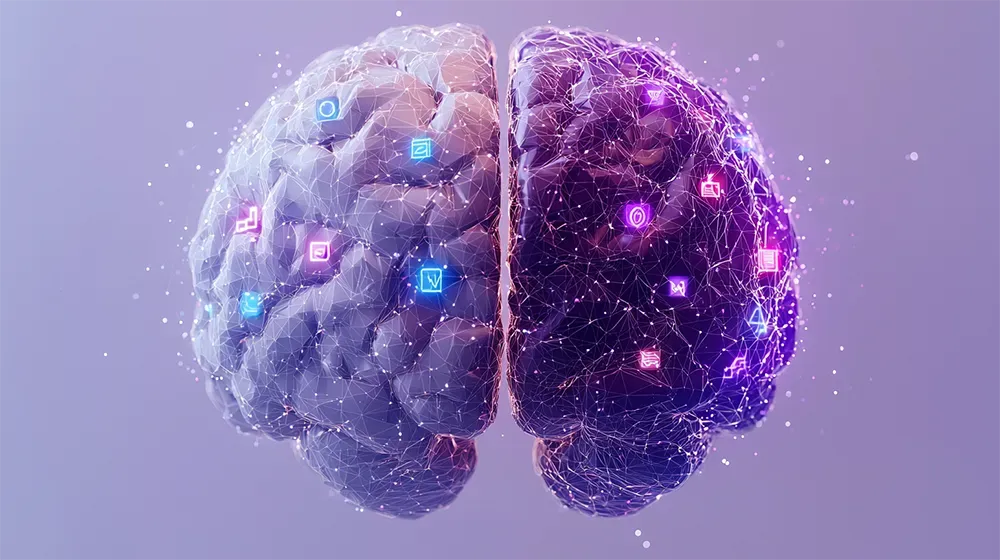Understanding Smart Cities through an Innovation Speaker's Lens

Understanding Smart Cities through an Innovation Speaker's Lens
In today's rapidly evolving world, the concept of smart cities has become more than just a buzzword - it has become a vision for the future. As we strive to create efficient, sustainable, and livable urban environments, understanding the intricacies of smart cities becomes paramount. To shed light on this topic, let's explore the perspective of an innovation speaker who brings a unique lens to the table.
Understanding the Concept of Smart Cities
Before we delve into the insights shared by our innovation speaker, it's important to grasp the concept of smart cities. At its core, a smart city harnesses the power of technology and data to improve the quality of life for its citizens. It encompasses various areas such as transportation, energy, healthcare, and governance, all seamlessly integrated to create a more connected and sustainable urban ecosystem.
Smart cities leverage advanced technologies such as Internet of Things (IoT), Artificial Intelligence (AI), and big data analytics to collect and process massive amounts of information. This data-driven approach allows for more efficient resource allocation, better decision-making, and enhanced urban planning.
However, the true power of smart cities lies not only in technological advancements but also in the innovative mindset that drives their development. This is where our innovation speaker's expertise comes into play.
Imagine a city where traffic flows smoothly, thanks to intelligent transportation systems that optimize routes based on real-time data. Commuters no longer have to endure long hours of gridlock, as smart traffic lights adjust their timings to reduce congestion. Public transportation is seamlessly integrated, with smart buses and trains that provide real-time updates on schedules and availability.
In a smart city, energy consumption is optimized through smart grids that monitor and manage electricity usage. Homes and buildings are equipped with smart meters that provide real-time data on energy consumption, allowing residents and businesses to make informed decisions about their usage. Renewable energy sources, such as solar panels and wind turbines, are seamlessly integrated into the city's infrastructure to reduce reliance on fossil fuels.
Healthcare in a smart city is revolutionized by the use of telemedicine and wearable devices. Patients can consult with doctors remotely, saving time and reducing the burden on healthcare facilities. Wearable devices monitor vital signs and provide early warnings for potential health issues, allowing for proactive intervention. Smart healthcare systems also enable efficient management of medical resources, ensuring that patients receive timely and appropriate care.
Governance in a smart city is transparent and efficient, thanks to digital platforms that enable citizen engagement and participation. Residents can access government services online, reducing bureaucracy and paperwork. Data analytics and AI algorithms are used to analyze citizen feedback and sentiment, enabling policymakers to make data-driven decisions that address the needs and aspirations of the community.
As you can see, smart cities are not just about technology, but about creating a better quality of life for citizens. It requires collaboration between government, businesses, and citizens to build an ecosystem that fosters innovation and sustainability. Our innovation speaker will delve deeper into these aspects, sharing insights on how to drive the development of smart cities and create a brighter future for urban living.
How an Innovation Speaker Bridges the Knowledge Gap on Smart Cities
As individuals, it can be challenging to stay updated on the latest developments in the world of smart cities. The ever-changing landscape of technology and urban planning can quickly become overwhelming. This is where an innovation speaker can bridge the knowledge gap and provide valuable insights.
Imagine attending a conference on smart cities, filled with experts from various fields. The room is buzzing with excitement as people gather to learn about the latest innovations and strategies for creating sustainable and efficient urban environments. Amidst the crowd, an innovation speaker takes the stage, ready to share their expertise.
By combining their extensive knowledge of emerging technologies and their deep understanding of urban dynamics, an innovation speaker brings a fresh perspective to the table. They have spent countless hours researching and studying the trends and advancements in smart cities, allowing them to provide a comprehensive overview of the topic.
With a charismatic presence and a knack for storytelling, the innovation speaker captivates the audience from the very beginning. They start by breaking down the complex concepts into digestible pieces, using relatable examples and real-life case studies. Suddenly, the seemingly intimidating world of smart cities becomes more approachable and relatable.
Through engaging presentations and thought-provoking discussions, an innovation speaker sparks curiosity and encourages critical thinking. They challenge the audience to question the status quo and explore new possibilities. By sharing their own experiences and insights, they inspire individuals to think outside the box and consider innovative solutions to urban challenges.
But it doesn't stop there. An innovation speaker goes beyond just providing information. They empower individuals and communities to embrace change and become active participants in shaping the future of their cities. They emphasize the importance of collaboration and highlight successful examples of cities that have embraced smart technologies to improve the quality of life for their residents.
Furthermore, an innovation speaker understands that smart cities are not just about technology. They recognize the need for a holistic approach that takes into account social, economic, and environmental factors. They delve into the importance of inclusivity, sustainability, and resilience in creating truly smart and livable cities.
As the session comes to an end, the audience is left inspired and motivated. They have gained a deeper understanding of the potential of smart cities and the role they can play in shaping their own communities. Armed with newfound knowledge and insights, they are ready to take action and contribute to the ongoing transformation of urban landscapes.
The Role of Technology and Innovation in Developing Smart Cities
Technology and innovation are the driving forces behind the development of smart cities. From smart grids that optimize energy consumption to intelligent transportation systems that reduce congestion, technology plays a pivotal role in transforming cities into more sustainable and livable environments.
One area where technology has made a significant impact is in the field of energy management. Smart grids, for example, use advanced sensors and communication networks to monitor and control the flow of electricity. This not only helps to reduce energy waste but also enables more efficient distribution, ensuring that power is delivered to where it is needed most. Additionally, smart meters allow consumers to track their energy usage in real-time, empowering them to make more informed decisions about their consumption habits.
Another aspect of technology's role in smart cities is the implementation of intelligent transportation systems. These systems leverage data and connectivity to optimize traffic flow, reduce congestion, and enhance safety. For instance, smart traffic lights can adjust their timing based on real-time traffic conditions, easing congestion and improving the overall efficiency of the transportation network. Furthermore, connected vehicles can communicate with each other and with infrastructure, enabling features such as collision avoidance and predictive maintenance.
However, it is important to note that technology alone is not the end goal of smart cities. Our innovation speaker sheds light on this aspect, emphasizing that technology should serve as a tool to enhance the quality of life, improve efficiency, and promote inclusivity. In other words, the focus should be on using technology to address the specific needs and challenges of a city and its residents.
Moreover, our speaker highlights the importance of innovation in the context of smart cities. While adopting existing technologies is a crucial step, it is not enough to simply rely on what already exists. To truly unlock the potential of smart cities, we must push the boundaries and explore new avenues for progress. Innovation drives continuous improvement, enabling cities to adapt and thrive in an ever-changing world.
One area where innovation can make a significant impact is in the realm of sustainability. As cities strive to become more environmentally friendly, innovative solutions are needed to reduce energy consumption, minimize waste, and promote renewable resources. This could involve the development of new technologies, such as advanced recycling systems or renewable energy generation methods, as well as the implementation of innovative policies and practices.
In addition to sustainability, innovation can also play a crucial role in promoting inclusivity within smart cities. It is essential to ensure that the benefits of technology are accessible to all residents, regardless of their background or socioeconomic status. This requires innovative approaches to bridge the digital divide, such as providing affordable internet access and digital literacy programs. Furthermore, inclusive innovation involves actively involving citizens in the decision-making process, ensuring that their voices are heard and their needs are met.
In conclusion, technology and innovation are key drivers in the development of smart cities. From energy management to transportation systems, technology plays a pivotal role in creating more sustainable and livable urban environments. However, it is important to remember that technology is not an end in itself; it should be used as a tool to enhance the quality of life, improve efficiency, and promote inclusivity. Moreover, innovation is crucial for the continued progress of smart cities, as it allows for the exploration of new solutions and the adaptation to an ever-changing world. By embracing technology and fostering innovation, cities can truly transform and thrive in the 21st century.
Innovation Speaker's Insight on the Benefits of Smart Cities
The benefits of smart cities are far-reaching and encompass various aspects of urban life. Our innovation speaker highlights some of these advantages, showing how they can positively impact both individuals and communities.
One of the key benefits is improved sustainability. Smart cities aim to reduce their environmental footprint through efficient resource management, renewable energy utilization, and waste reduction. This not only helps preserve our planet for future generations but also creates healthier and more sustainable living conditions.
Additionally, smart cities foster economic growth and innovation. By embracing technological advancements, they attract businesses and talents, creating a vibrant ecosystem that fuels entrepreneurship and drives economic prosperity.
Furthermore, our innovation speaker emphasizes that smart cities empower citizens. Through technological solutions and data-driven insights, individuals are given the tools to actively participate in decision-making processes and shape the future of their communities.
Practical Steps towards Building a Smart City
Building a smart city requires a systematic approach and collaboration among various stakeholders. Our innovation speaker shares practical steps that can help cities embark on their journey towards becoming smart.
First and foremost, it is crucial to establish a clear vision and set goals that align with the unique needs and aspirations of the city and its citizens. This vision serves as a guiding compass for all future initiatives and investments.
Next, partnerships and collaboration become paramount. By bringing together government agencies, private sector organizations, academia, and community groups, cities can leverage the expertise and resources of each stakeholder to drive progress.
Investing in infrastructure and technology is another crucial step. Smart cities require a robust digital infrastructure that can support the collection and analysis of data, enabling decision-makers to gain actionable insights for better urban planning.
Lastly, cities must prioritize citizen engagement and inclusivity throughout the smart city development process. By involving citizens in the decision-making process and addressing their needs and concerns, cities can create a sense of ownership and ensure that smart solutions truly benefit the community.
Conclusion
In conclusion, understanding the intricacies of smart cities is essential as we embark on the journey of building sustainable, efficient, and inclusive urban environments. By embracing technology, fostering innovation, and empowering citizens, cities can unleash their potential and create a better future for all. Through the lens of an innovation speaker, we gain valuable insights that help us navigate the complexity of smart cities, inspiring us to be proactive architects of our urban landscape.
Frequently Asked Questions
1. What is a smart city?
A smart city harnesses the power of technology and data to improve the quality of life for its citizens. It integrates various aspects such as transportation, energy, healthcare, and governance to create a connected and sustainable urban ecosystem.
2. How can an innovation speaker help bridge the knowledge gap on smart cities?
An innovation speaker combines their extensive knowledge of emerging technologies and urban dynamics to provide valuable insights on smart cities. They break down complex concepts, use relatable examples, and inspire critical thinking, empowering individuals and communities to actively participate in shaping the future of their cities.
3. What role does technology and innovation play in developing smart cities?
Technology and innovation are the driving forces behind the development of smart cities. They enable efficient resource management, enhance sustainability, improve economic growth, empower citizens, and drive continuous improvement. However, it is important to remember that technology should serve as a tool to enhance the quality of life and promote inclusivity.
Contact Dr Mark van Rijmenam - Innovation Speaker for Your Event
Are you ready to elevate your next event to a whole new level of enlightenment? Dr Mark van Rijmenam, a renowned innovation speaker, is here to bring a fresh perspective to your audience. With his extensive knowledge of smart cities, emerging technologies and urban dynamics, he will captivate your attendees with engaging presentations and thought-provoking discussions. His expertise in the field will not only provide valuable insights but also inspire your audience to become active participants in shaping the future of their cities. Don't miss this chance to provide your attendees with a transformative experience. Simply complete the form below and we will be in touch within 24 hours to discuss how Dr Mark van Rijmenam can bring the vision of smart cities to life at your next event.





